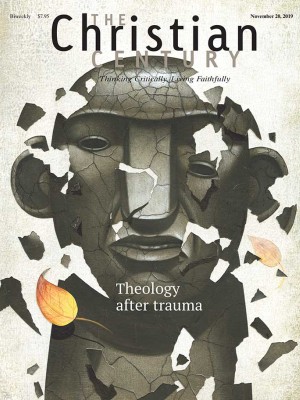Is there a link between fertility and faith in South Korea?
Buddhism offers a clear answer. With Christianity, it’s more complex.

Around the world, there is a close correlation between a society’s fertility rates—the average number of children born to a woman during her lifetime—and that society’s level of religious practice and behavior. As total fertility rates fall below the replacement level of 2.1, religiosity declines, as has been spectacularly the case in many countries of Europe and in Japan.
The reasons for the linkage are open to debate, and the chain of causation is uncertain. Perhaps families with fewer children have less need or inclination to belong to religious congregations, which are no longer needed for purposes of education, religious training, and the various rites of passages. (Only when you take children out of the equation do you realize how central they are to the whole rationale of religious structures.) Or perhaps as people lose their faith, they experience less pressure to bear children. However, the pattern is clear and (with a very few exceptions) strikingly consistent. Fertility and faith are intimately linked.
Read our latest issue or browse back issues.
South Korea represents a special case in this story. It’s a country with one of the world’s lowest fertility rates: 1.0. As we might predict, that collapse has had religious consequences.
Traditionally, Buddhism was at the heart of Korean religion, and it was critical to national culture. But the faith has declined sharply during the present century. The number of young people seeking ordination as monks and nuns has also plummeted, to the alarm of Buddhist authorities. As in the Christian West, Buddhist Korea has seen a serious graying of its clergy. In many ways this trend parallels the comparable decline of Christian monastic orders in the West and of mainline churches. Just in the decade after 2005, the proportion of South Koreans professing themselves Buddhists fell from 23 to 16 percent, and Buddhist leaders expect no better news in the next national count.
We might imagine that this is part of a larger shift from Buddhism to Christianity, as the country’s Christianity has long been vaunted as a success story, even a near miracle. Although South Korea does not have an outright Christian majority, Christian numbers have expanded very rapidly in recent decades. Since the 1960s, Christian churches of all kinds have boomed, and the country is host to some of the world’s largest evangelical and Pentecostal congregations.
It is difficult to miss an institution like the Yoido Full Gospel Church, founded in 1958, and which today has some 800,000 members. In some cities, churches are easier to find than convenience stores. The nighttime streetscape of Seoul is distinctive for its abundance of neon crosses, each marking a church, usually Protestant in orientation. Globally, the country sponsors the largest number of missionaries, exceeded only by the United States.
How can we reconcile such a picture with claims of religious decline? Surely there cannot be at the same time a religious boom, amounting to something like a national revival, and a religious crisis.
But the reality is complex. In conversation, Christian leaders are as nervous about their long-term prospects as are Buddhists, and like Buddhists they are very conscious of a failure to attract young believers. Even in the apparently thriving megachurches, clergy regularly offer pessimistic predictions of their fate as refuges for the aged. Many of the largest churches have been struck by damaging scandals.
Most troubling for believers of all types is the mushrooming growth of those professing no religion whatever, a category that in the US has come to be called the nones. We have to be very careful using this label: people in this category are simply denying a religious affiliation, not rejecting God or a supernatural worldview. To use a distinction familiar to sociologists of religion, they may believe without belonging.
But Koreans, in very large numbers, have stopped belonging. The same census that revealed the disastrous shrinkage of Buddhism also indicated that between 2005 and 2015 the number of Koreans admitting no religion whatever had grown from 47 to 56 percent. Most observers expect a similar increase by the time of the next count in 2025. Such numbers cast a very different light on claims of enduring Christian triumphs in that nation. They also confirm the likely religious trajectory of a very low fertility society.
This story does raise intriguing questions for other societies with fast-dropping fertility rates. Last year, the US rate continued to plummet, reaching 1.72, with further declines predicted. The trend bears careful watching.
A version of this article appears in the print edition under the title “Faith—and fertility—in decline.”







